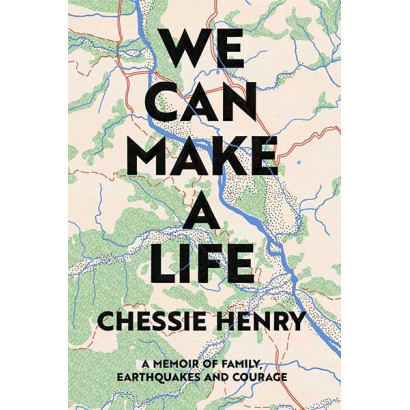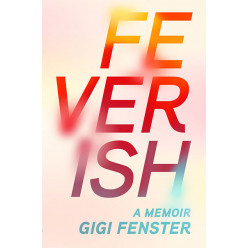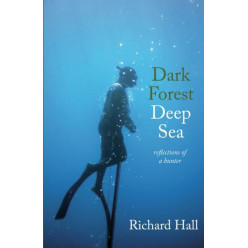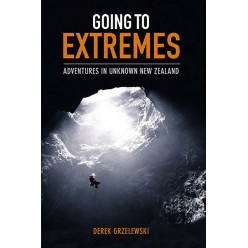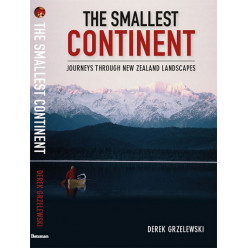We Can Make a Life
Immediate Download
Download this title immediately after purchase, and start reading straight away!
View Our Latest Ebooks
Explore our latest ebooks, catering to a wide range of reading tastes.
From: We Can Make a Life, by Chessie Henry
Hāpuku
The road home was gravelled, loose in places and rising into mounds at either bank. It was a straight road, for the most part, clinging to the edges of a flat stretch of coastline, elevated a little way above the sea. Despite the water in plain sight it felt hot—or at least, it all seemed to evoke hotness; the tussock burnt yellow-green and dry, the charcoal-coloured sand of the beach. That day it seared, heat rising out of the ground and blurring everything, the dreaded hole in the ozone layer like a vast, invisible puncture overhead.
Old Beach Road, Hāpuku. At first our new address had appealed in an underdog kind of way—a name belonging to a beach whose beauty had been overlooked, eclipsed by whiter sand and milder water. In fact, it was the opposite, pushing people away with its burning black dunes and crashing, volatile waves. Sometimes it was so windy down there we couldn’t hear ourselves talk, sand whipping our exposed legs, the sound of the waves roaring into our bedrooms at night. To stand out there on the edge of the tussock, and have it all spread out before you—it had us whooping, just to make ourselves heard against the wildness.
We weren’t allowed to swim in the water. Sometimes in the summer we saw hippies going in, when the roads were busier and people drifted down to the ocean. Tourists would sit around kissing and burning, leaning their backpacks up against the rough sand. Once, a nudist—we spied him from where we were playing along the tussocked dunes, with his hands on hips and sporting a floppy sunhat, tufts of white hair down his back. He stared out across the water, and then strode in, his backside small and deflated in the midday sun. We clapped our hands across our eyes and cackled, horrified. Who would pull a naked guy out of the water if he got caught in a rip? Not us.
Running between the beach and the road was the TranzCoastal railway line, tracking its rickety course along the tracks behind our house. The trains roared past periodically, a rush of cargo or blurred faces, the coins we left out on the tracks turned flat and pictureless. We figured the noise was a small price to pay for our little home on the edge of everything, a hidden gem between the snow-covered mountains and sea. This was our house before Clarence, and before earthquakes. Years later, when we returned to Hāpuku, the road would be tar-sealed, summer heat rising from the black asphalt in a hazy mirage. But back then it was gravel, and the cars that passed were always followed by white clouds of gritty dust. The dust textured your hair if you left the windows down as you drove along—or biked, as I did that day.
I was thirteen, and I was on my way home from the purple-and-yellow dairy, a lurid legoblock building which marked the end of Old Beach Road and the meeting of the highway as it swept into Kaikōura. We were allowed to bike as far as the dairy, returning with tongues turned red from popsicle slushies and sherbet, salt and vinegar chips burning the roofs of our mouths. It was five k’s back to the house. I pumped my feet up and down on the pedals, the seat hot from where I’d left the bike out in the sun, sugar singing in my veins.
I turned to look back when I heard the sirens, the familiar shape of Dad’s Land Rover humming towards me in the distance, a dust cloud in his wake. I could see the lights glittering—inside the car there was a button, a wire winding up and outside the window to where they were screwed onto the roof. He would turn them on for us sometimes when he was coming up the driveway, the siren wailing to us that he was home. I was nearly too old for it: the squealing Dad’s back! and the race to the door, hopping our bare feet over the sharp limestone chips of the garden path.
On the side of the road, I swung my legs off my bike, ready to flag him down for a pick-up. I put one hand to my shoulder, feeling its hot burn. We always forgot to wear sunblock—my nose was hard and cracked, my arms turned dark. When I held them up against my pale stomach in the shower, it was as though they were separate from my body; a stranger’s limbs.
I watched his eyes flick towards me as he sped past, forcing me to turn my back against the dust. I was still some distance from the house, and I watched him race away, the car disappearing after he crossed the one-way bridge and the road curved out of sight. ‘Shit,’ I said loudly, letting the expletive hang in the otherwise emptiness, the quiet left behind once the sirens had passed. I kicked my feet back on the pedals and pushed forward, irritated and thirsty. Dumb, I thought, stupid. Why didn’t he stop for me?
I pedalled over the little bridge, the creek below mostly dried up, white towering flowers with their thick, aggressive stems lining the way. The stalks oozed out sap when you snapped them, milky white and sharp-smelling. Spiders laid their nests in the weeds here, creamy sacs bulging in the sun. I left it all behind, the road rising upwards—a short burst of incline followed by the steady sweep down. On the up my cheeks burned, streaks of dirt on my forearm where I’d wiped my mouth. Halfway I stopped to walk my bike, hoping no cars drove up behind me and saw. My brothers biked this stretch like it was nothing, their legs moving like water. I felt slow and hot, hair slick down the back of my neck.
On the downward slope I set off again, and as I rounded the corner I could see the Land Rover parked haphazardly in the tussock on the roadside. Its front door was open from where my father had spilled out of it. He was kneeling now, his hands working quickly over the body of a man who was lying on his back. I biked towards them slowly. There was a dune buggy on its side, and boys everywhere—lying down or sitting up, bloody. There was a quiet feeling, a buzzing, the boys silent except for a low moaning sound coming from one whose legs bent strangely out of place at the thighs. I recognised some of them—older guys, from the high school. They’d made me feel nervous, mostly, when I saw them around. A couple of times over the summer I had been to the movies in town, and they would sit at the back smelling like sweat and Lynx deodorant, shouting insults at each other and laughing, their trackpants and jackets rustling during the quiet parts. One of them had thrown a Snifter at the back of my head and I’d frozen, too afraid to turn around.
Now, I stared. One boy had pulled himself across the road to lean against a fencepost in the grass. He sat, stunned and silent, eyes set blankly towards the sea. He looked pale, his arms hanging at his sides, gravel studded across his skin.
‘Dad,’ I said, uncertain, still on tiptoe with my feet off the pedals. He was on his knees with his medical pack, moving calmly between the boys. He didn’t answer, just looked up to smile tightly, his mind somewhere else. Blood had soaked into the gravel and was drying in the sun, dark compared with its redness on the boys’ skin. There were about eight of them—more than could fit safely into the dune buggy, even I knew that. Behind them I could see tracks in the gravel, long swooping curves. One of them seemed worse than the others, quieter. He seemed to be having trouble breathing—or, in any case, Dad had set up a blue plastic breathing cup over his mouth.
I could feel heat starting to colour my cheeks, became aware of my heart beating. I wondered briefly if everyone else could hear it, if they could see the sweat prickling on the handlebars under my palms. The one with the broken legs made me feel dizzy, but really all of it did—the blue sky, the glare on the gravel and the boys’ skin, so easily torn open where they’d hit the road, thrown out of the buggy like knuckle bones. Dad was making calls on his phone, talking to the boys, touching them here and here, his hands on their broken bodies like code. I stayed on my bike, wheeling myself off to the side when the ambulance showed.
I don’t know when Dad appeared, but he did, clapping his hand on my elbow and squeezing me towards him. ‘Well,’ he said cheerfully, ‘they’ll all be fine. You should head home, honey. I’m relieved, I’ll say that.’
He looked pale in his high-vis vest, blood streaked across his trousers where he’d wiped his hands. He could probably come home to change, I thought, because we were so close anyway. That way he wouldn’t have to be bloody for the rest of the day, in front of the normal patients. ‘I thought it was us, actually,’ he said, nodding towards the dune buggy. ‘Call out for our address, carload of boys … I thought for sure it was your brothers. Seems silly now. They can’t even drive.’ He smiled at me. I thought about him racing down the road, rushing past me, full up with the image of his four sons bruised and bleeding on the roadside.
My ride home was slow and heavy, as though I had been swimming in my clothes, my shoes filled up with water, weighing me down. As I crossed the railway line I stopped to put twenty cents on the tracks for later. We collected them, our flattened coins—long past wondering if they would derail the trains that thundered over them. The coin seemed bright against the rust-coloured rails; a tiny, silver full moon, unaware of what was coming for it—all heat and noise, unstoppable. I left it there and pedalled on, past the abandoned goat house and the mailbox, the giant tree and the pancake stones we had piled up into towers. I dumped my bike on the lawn and looked up towards the house. My mother was visible in the kitchen window, her head bent down, her back to me. I flopped down beside the bike, the wheels still spinning, and wondered vaguely when the next train would be. It felt like forever had passed since I’d left for the dairy, or hardly any time at all.
